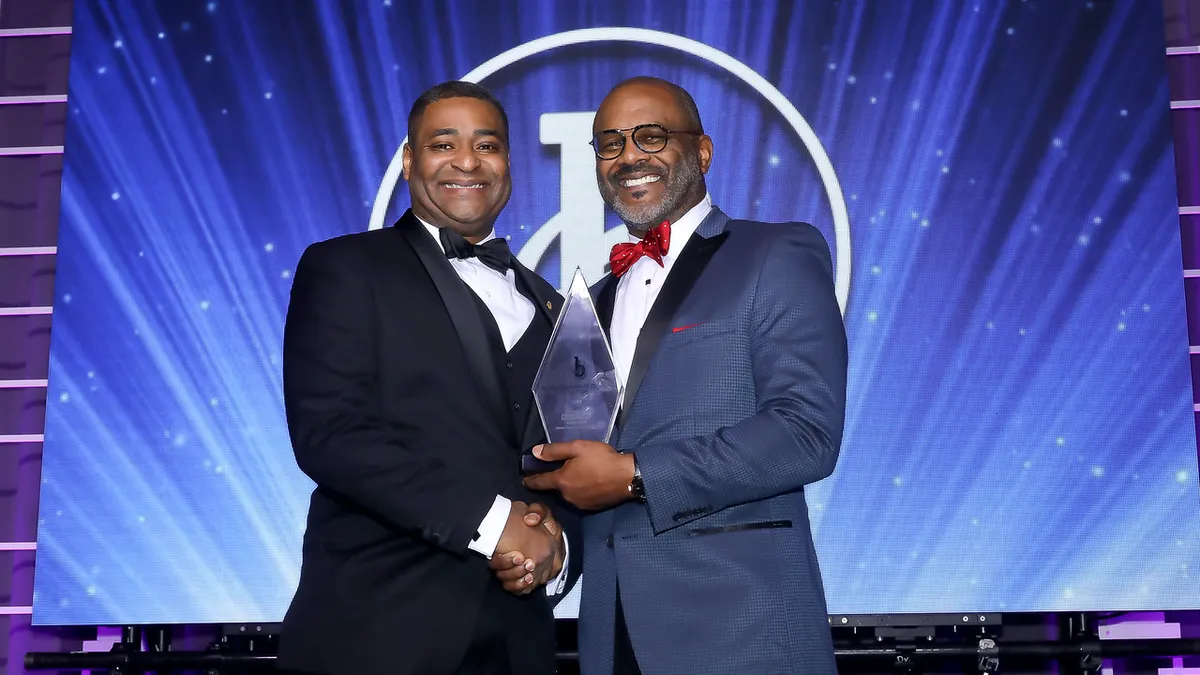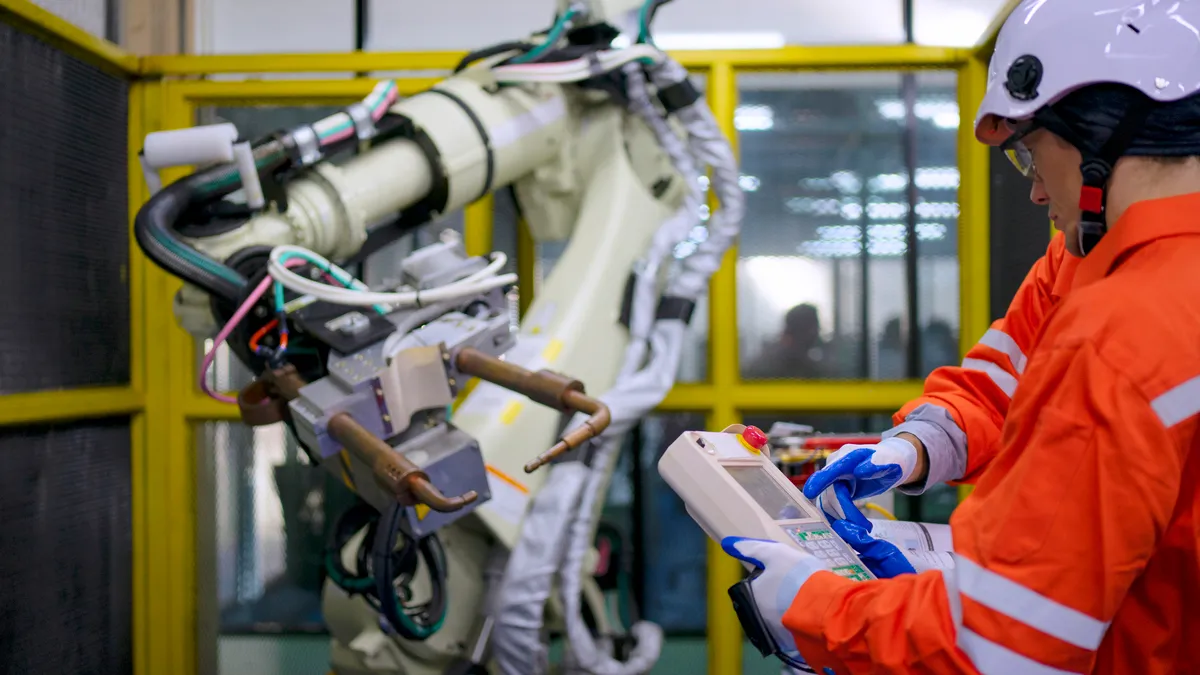A transformational leader never stops challenging themselves or their organization, according to Gerald Johnson, executive vice president of global manufacturing at General Motors. Johnson, who began his current role in April 2019, spoke with HR Dive about his career journey, leadership lessons and the importance of diverse tech talent.
During the Black Engineer of the Year Awards (BEYA) conference in Washington, D.C., Feb. 15, Johnson said he's responsible for about 150 plants across the world, producing more than 8 million units a year. "My day to day is planning to make sure we continue to grow that business over the next 3-, 5-, 10-year horizon. A lot of the time is actually spent planning, strategizing [about] what must be true for us to be successful in the future."
Johnson, the highest-ranking black male executive at General Motors, is a member of Chairman and CEO Mary Barra's senior leadership team, and in January 2020, he was appointed to the GM PAC Board and Steering Committee. Johnson is responsible for about 165,000 employees worldwide. Although he began his new role after gaining leadership experience at General Motors, including previously serving as vice president of North America manufacturing and labor Relations and vice president of operational excellence, Johnson said he's a continual learner.
New levels of learning
Johnson was a 2014 BEYA Career Achievement Award winner; the organization also named a legacy award after Johnson that recognizes an individual's technical achievements, management skills, leadership and community service. But the learning doesn't end.
"I've been with General Motors for over 39 years," he said. "I've had about 15 or 20 different job assignments all of them had some piece of me that was capable of the role, and some piece of me [that had to] learn. In April, when I got this responsibility as well, I had to learn."
Johnson, who earned a master's degree in manufacturing operations from the Massachusetts Institute of Technology, said it was important for him to seek counsel from other team members who have C-suite responsibilities. Overseeing the manufacturing footprint is a major aspect of his job, but Johnson said "there's an additional responsibility to contribute to the strategy of the company — the entire enterprise." Providing input on engineering, sales or strategic business development decisions, including partnerships and mergers, were new areas of responsibility for him.
Johnson said his immediate supervisor, Barra, the first female CEO of a major automaker, "is always a source of counsel to me". He said professionals outside of the industry whom he's known for many years also "contribute to a sounding board for ideas and thoughts and questions."
"Mary is phenomenally awesome," Johnson said."She's brilliant, obviously. She cares tremendously about the business, about the 200,000 or so employees that are in this business."
Creating a STEM talent pipeline
Under Barra's directive, General Motors is on a mission for zero crashes, zero emissions and zero congestion through the creation of electric, self-driving, connected vehicles and shared mobility services, Johnson said.
"When she stepped up and said zero, zero, zero, I don't think anyone knew what that would look like," he said. "But, over the last few years, as we continued not only the mantra, but to shift our resources and our strategy in that direction under her leadership, it has helped us to understand where we're going and why we're trying to get there, and why it matters. Saving lives matter. Saving the planet matters. Saving people the most precious commodity of time matters."
Following up on those goals, however, requires top talent in science, technology, engineering and mathematics (STEM) fields. General Motors seeks to create opportunities and cultivate interest in STEM by creating points of access for underrepresented and diverse groups, Johnson said. The company's annual participation in BEYA aims to encourage students that they too can achieve in STEM, building a talent pipeline in he process, he said.
General Motors wants students to know they could be the one who "innovates the next generation of electrification or hydrogen fuel cells or autonomous vehicles or any number of things," he said.
At the BEYA conference, Johnson and Marcos Purty, executive director of global manufacturing strategy and planning at General Motors, participated in a forum with high school students in the Detroit Area Pre-College Engineering Program, a nonprofit organization, and answered their questions about what it means to be an engineer.
"We find that, if we start early in promoting and encouraging and supporting, we'll have a higher success rate of those who pursue a STEM college education and ultimately come innovate for us, or even outside of General Motors," Johnson said.





















